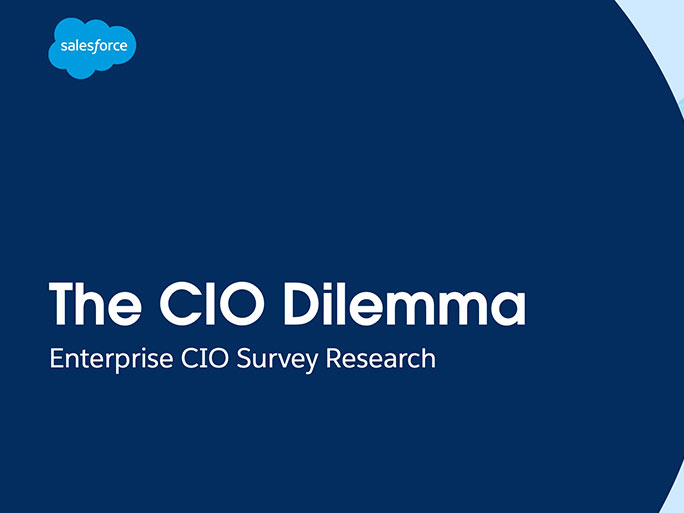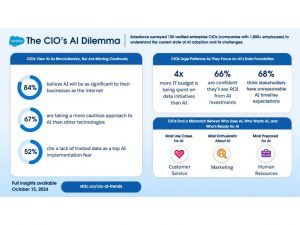Salesforce Reveals the Paradox of CIOs in the Face of AI Implementation

A study reveals that CIOs face a dilemma with AI: only 11% have implemented it, while 67% take a cautious approach due to security and data fears.
Salesforce has released a recent study that reveals the dilemma CIOs face when it comes to implementing Artificial Intelligence (AI) in their organisations. This study, called ‘The CIO Dilemma, Enterprise CIO Survey Research’, addresses how technology leaders are in a phase of experimentation with AI, but with significant obstacles preventing them from moving forward more decisively.
The CIO Dilemma, Enterprise CIO Survey Research
The implementation of Artificial Intelligence (AI) is creating a noticeable gap between expectations and reality for enterprise CIOs. One of the most telling insights from the report is that, despite 84% of CIOs believing that AI will be as crucial to their business as the rise of the internet was, just 11% of CIOs have managed to implement AI fully in their organisations.
This is largely due to a combination of factors ranging from a lack of trust in data to concerns about security and privacy. 67% of respondents admitted to taking a more cautious stance on AI compared to other emerging technologies.
Top CIO fears about AI
The report highlights that CIOs’ main fears centre on two key issues: security threats and the lack of reliable data. Fifty-seven per cent of CIOs identify security and privacy threats as their biggest concern when considering AI, while 52 per cent highlight the lack of reliable data as a major barrier to adoption. Other issues they face include the inability to identify suitable use cases (31%) and the difficulty of training their staff with the necessary skills (31%).

The need to upgrade data infrastructure
One of the most striking findings is that many CIOs admit that their companies are still using old data centres and legacy applications that make it difficult to share data and, consequently, to implement AI. Not only that, but 68% perceive that their business stakeholders have unrealistic expectations regarding the return on investment (ROI) of AI.
In terms of budget allocation, CIOs allocate four times more resources to infrastructure and data management than to AI, while their main concerns are security and privacy threats, as well as the lack of reliable data, two critical barriers holding back the deployment of artificial intelligence in enterprises.
This problem is further exacerbated in enterprises where IT systems are not sufficiently modernised to support the ingestion, processing and analysis of large volumes of data, which is crucial to the success of AI.
Areas of greatest potential for AI
Despite the challenges, the CIOs identified key areas where AI can make a big impact. Customer service, marketing and sales are the sectors that could derive the most value from AI, according to the report. However, perceptions vary depending on the readiness of each area; for example, human resources is seen as the most ready to adopt AI, followed by finance and sales.
Overcoming ‘analysis paralysis
The study highlights that CIOs need to move beyond the experimentation phase. To do so, it recommends that they develop clear guidelines to ensure safety and reliability in AI practices, as well as establish concrete metrics to measure success. These metrics can range from the number of hours saved, to closing new deals, to improved customer service feedback.
In addition, CIOs face increasing internal pressure, with 61% of CIOs believing that expectations of their AI expertise are higher than what they actually handle.
As organisations seek to capitalise on the potential of AI, it is clear that those who can overcome these obstacles will be better positioned to take advantage of the opportunities offered by this technology.